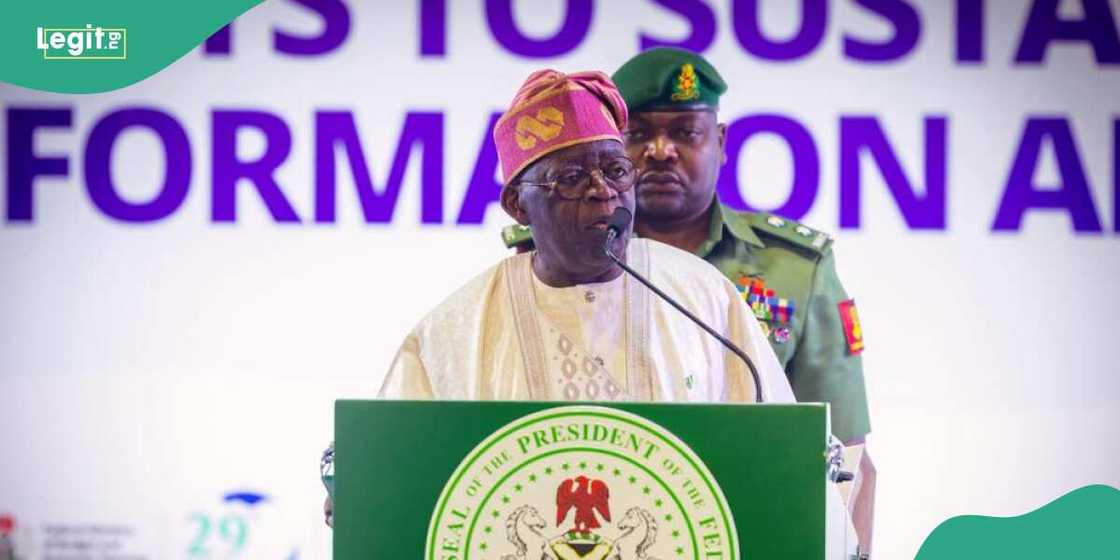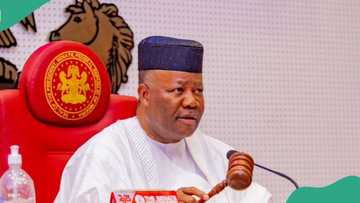Unemployment Frustrating Nigeria Youths Nationwide, New Stats Revealed
- Nigeria's high unemployment rate seriously threatens the Nigerian labour market and the economy's efficiency
- The Deutsche Gesellschaft für Internationale Zusammenarbeit (GIZ) said the working environment in Nigeria is not of the best standard
- The federal government has acknowledged this problem and has commenced moves to tackle the situation as soon as possible
Legit.ng journalist Segun Adeyemi has over 9 years of experience covering political events, civil society, courts, and metro
FCT, Abuja - More than 90 per cent of the workforce in Nigeria operates in an insecure environment, according to the German International Development Agency, Deutsche Gesellschaft für Internationale Zusammenarbeit (GIZ).
Citing data from the Nigeria Bureau of Statistics, GIZ highlighted a concerning level of underemployment in the country.

Source: Twitter
The team lead for GIZ's Skills Development for Youth Employment (SKYE) project, Detlef Barth, expressed that the high unemployment and underemployment rates have led to frustration among Nigerian youths, emphasising the prevalence of informal sector employment in potentially unprotected conditions.
PAY ATTENTION: Share your outstanding story with our editors! Please reach us through info@corp.legit.ng!
Addressing the National Conference on Public Employment Services in Abuja, Barth stressed the importance of adopting sustainable models from successful practices in other regions to tackle labour market challenges.
With nearly two-thirds of Nigeria's 220 million population under 25, Barth underscored the pivotal role of innovative employment services in addressing the nation's labour market issues.
He said:
“These are not mere numbers but human and social tragedies. Human capital is not utilized, and a generation of frustrated young people might be the consequence.”
FG confirm employment crisis in Nigeria
The Minister of Labour and Employment, Simon Bako Lalong, acknowledged challenges in the employment service system and inferior access to labour market information.
Represented by Chris Amadi, he said:
“Addressing Labour Market Challenges through Delivering of Public Employment Services”, underscores the urgency with which government must act to activate active labour market measures both at the federal and state levels for the purpose of productive employment and decent jobs for the teaming youth and job seekers through efficient delivery of public employment services”.
Lalong mentioned ongoing efforts to enhance employment rates in Nigeria, including establishing the National Electronic Labour Exchange (NELEX), an electronic platform aligning with the ILO Convention 88 to facilitate online connections between job seekers and employers.
“Our NELEX is intended to be a one-stop-shop that provides advance, comprehensive and integrated technology that allows job seekers, employers and other stakeholders access employment services and labour market information,” he said.
Vanessa Phala, the country director of the International Labour Organisation (ILO), highlighted its commitment to assisting countries in prioritising employment in their economic and social policies.
She mentioned that the ILO recently conducted an assessment of public employment services.
She said:
“ILO considers Public Employment Services as an essential contributory component of well-functioning labour market systems.
N-Power mute on batch C as it confirms batches A, B beneficiaries no longer in programme
In another report, the defunct Batch A set of the All Progressives Congress (APC) administration's N-Power scheme started in September 2016 and ended four years later.

Read also
"Nigeria is losing": Minister raises alarm over foreign welders earning N120,000 per day in Nigeria
Batch B beneficiaries of the initiative, one of Africa’s largest post-tertiary job schemes, were on board between August 2018 and July 2020.
One million batch C beneficiaries (510,000 for Stream C1 and 490,000 for Stream C2) were enrolled in 2021.
PAY ATTENTION: Donate to Legit Charity on Patreon. Your support matters!
Source: Legit.ng




